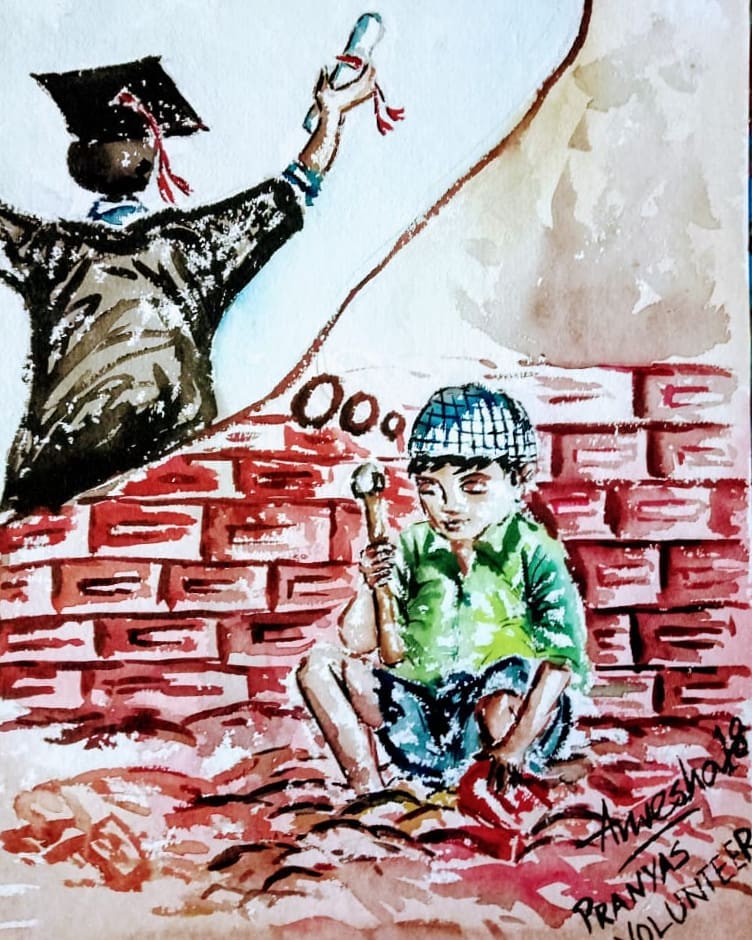The pandemic's shock to education
This pandemic has influenced all of us in innumerable ways, to the point where, due to sheer tediousness, most of us wish it was over. But today I want to talk to you about how this lockdown is impacting students, and more generally, education.
 It has been over 100 days since schools all over the world have been shut down due to the pandemic. And in education, where academics is coupled with strict deadlines and timelines, this pandemic has been no less than a disaster. As of 7 June 2020, approximately 1.725 billion learners were affected due to school closures in response to the pandemic. According to UNICEF monitoring, 134 countries are currently implementing nationwide closures, and 38 are implementing local closures, impacting about 98.5 percent of the world’s student population.
It has been over 100 days since schools all over the world have been shut down due to the pandemic. And in education, where academics is coupled with strict deadlines and timelines, this pandemic has been no less than a disaster. As of 7 June 2020, approximately 1.725 billion learners were affected due to school closures in response to the pandemic. According to UNICEF monitoring, 134 countries are currently implementing nationwide closures, and 38 are implementing local closures, impacting about 98.5 percent of the world’s student population.
In India, the union government had declared a countrywide lockdown of schools and colleges on 16 March. All national level exams, such as the board examinations for school level students, JEE Main, and the Interview for Civil Services Examination were postponed. The nation has 28,63,76,216 learners enrolled from pre-primary to upper-secondary, and 3,43,37,594 learners enrolled in tertiary education programmes.
Continuing education during uncertainty
Every such student facing the pandemic, old and young, will be losing precious months of their education. Moreover, this pandemic has facilitated the rise of a social divide, especially in third world countries with a large learner population, such as ours. Those with opportunity and access during this lockdown can get far ahead than those without.
 And this causes us to lose a very fundamental aspect of education - uniformity.
And this causes us to lose a very fundamental aspect of education - uniformity.
Since every educational institute has different capabilities and resources, the resources offered to students vary drastically in this period. Indian education has always had the same syllabus, similar timelines, and uniform examinations, for all students up until they move to university. However, due to the pandemic, some schools offer online education, some do not. Moreover, only the privileged can access online education sources, which puts a large portion of the student community at a disadvantage, who will eventually be judged in comparison to those who have had better means.
An extended stay-cation
Furthermore, solutions to this vary depending on the age of a student. For a younger student, the education given in classes can be substituted post lockdown, with the help of extended classes and more interactive teaching methods. For a high school student, training through the internet and sufficient delay in examinations can help them catch up when the lockdown is over and schools re-open. For a university student, the methods employed by the institute may be uniform within the university, but not on a global scale, and hence the decisions of the said university will largely influence their future.
 In all this, there is no denying that students in India will need assistance to get back on their feet. It is not an impossible task, but many have been denied education for months, and it will be hard for them to catch up, especially those who are giving national and international level standardised examinations. For a student themself, it becomes a responsibility to keep revisiting whatever material available, and to consider the days of lockdown not as a vacation, but as a disadvantage, since their education is going to be delayed as this stretches on. We need to ensure that no student misses out on any part of their knowledge since it involves their life skills, personal development, and opportunity being at risk.
In all this, there is no denying that students in India will need assistance to get back on their feet. It is not an impossible task, but many have been denied education for months, and it will be hard for them to catch up, especially those who are giving national and international level standardised examinations. For a student themself, it becomes a responsibility to keep revisiting whatever material available, and to consider the days of lockdown not as a vacation, but as a disadvantage, since their education is going to be delayed as this stretches on. We need to ensure that no student misses out on any part of their knowledge since it involves their life skills, personal development, and opportunity being at risk.
Is digital education the new normal?
This lockdown also emphasises the need of a secondary, or backup system, that is uniform and well maintained, such that even in times of crisis, the balance of education, and the holistic development of a student, remains untarnished. Those working for schools must take this time to re-evaluate and re-organise the current education system so that any such crisis will not have the power to influence a student’s learning again.

For the rest of us, it is imperative at this time to distribute knowledge and learning resources as much as possible. To the educators out there, reach out to students you know, assist students online, try to create accessible learning information, and try to design better methods of teaching to cope with the current situations. It becomes our duty to ensure that no student misses out on an opportunity due to this lockdown and that when it is raised, the uniformity among students in various branches of education is reinstated as soon as possible because uniform education leads to equal opportunity.




